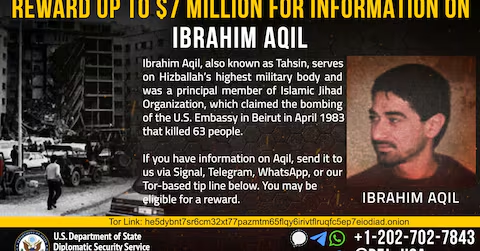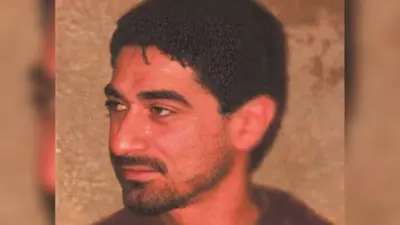Ibrahim Aqil, a high-ranking Hezbollah operations commander killed in an Israeli airstrike on Friday, had a $7 million U.S. bounty on his head for his alleged role in two devastating 1983 Beirut bombings that killed over 300 Americans.

Two Lebanese security sources confirmed that Aqil, also known by the aliases Tahsin and Abdelqader, was killed during a meeting of Hezbollah’s elite Radwan unit in Beirut’s southern suburbs. The Israeli strike marks a significant escalation in the ongoing conflict between Israel and Hezbollah.
Aqil was accused by the United States of involvement in the April 1983 truck bombing of the American embassy in Beirut, which killed 63 people, and the Marine barracks bombing six months later that claimed 241 lives. The U.S. also alleged his involvement in the abduction of American and German hostages in Lebanon during the 1980s.
Born around 1960 in Lebanon’s Beqaa valley, Aqil was a founding member of Hezbollah after switching from the Amal movement. He served on Hezbollah’s top military body, the Jihad Council, and was instrumental in the group’s evolution from a militia to Lebanon’s most powerful military and political organization.

Hezbollah leader Sayyed Hassan Nasrallah has previously denied the group’s involvement in the 1980s attacks on Western interests in Lebanon, attributing them to unaffiliated small groups.
Aqil’s death follows the July killing of Fuad Shukr, another high-ranking Hezbollah official, in the same area. These strikes represent significant blows to Hezbollah’s command structure, potentially rivaling the 2008 assassination of Imad Mughniyeh.
As tensions escalate between Israel and Hezbollah, with cross-border fighting intensifying since the October 7 Hamas attack on Israel, the killing of Aqil may have far-reaching implications for regional stability and the ongoing conflict.



